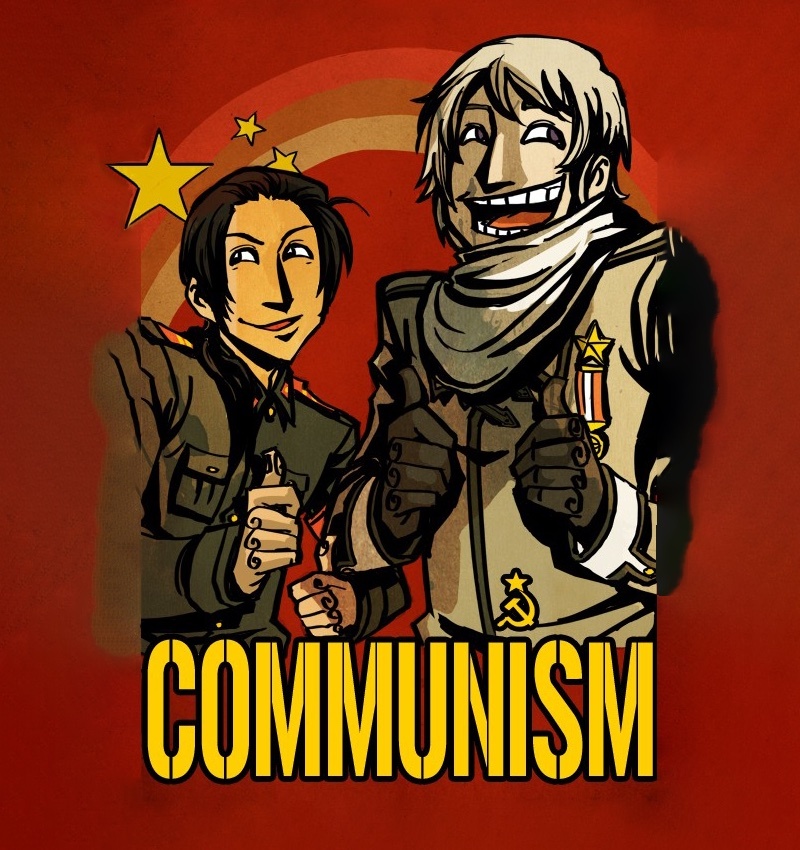

That’s just the pre-New Cold War early-mid 2010s reddit r/worldnews top comment copypasta that would appear every time in a DPRK-related thread. “Oh, the only reason South Korea isn’t reincorporating the DPRK East Germany-style is because China fears the North Korean hordes (“Norks”) flooding in and uncontrollably eating all the grain in China with giant spoons after having been famined by “rocketman” Kim.”
Sino-Korean relations are actually a very fascinating study that go beyond Western propaganda’s vibes based assertions of “dependence” and “vassalage.”
It’s important to establish a macroscopic view of the Sino-Korean relationship to understand the material conditions which underpin it today. The basis of the relationship dynamics between China and the DPRK go back to the late Qing Dynasty which, to be plain, completely abandoned Korea to the predations of Japanese imperialism. The Korean Joseon government had refused to establish relations with Japan explicitly due to their loyalty to China and (misplaced) faith in its capacity to come to Korea’s rescue as the Ming once did against Japan’s invasion in the late 16th century. The Qing, having just lost their own war against Japan, were in no position to do so. The Japanese pretext for initiating its imperialist assault on Korea actually began with the pretext of “opening it up” as a direct result of this Korean diplomatic refusal. This soon forced Korea to sign its first unequal treaty with Japan and began the catastrophically traumatic Japanese invasion of Korea. The sense of Qing China having failed to live up to its obligations, and with such calamitous consequences for Korea, is the historical essence which permeates both Chinese and Korean perceptions.
This sense of past failure in historical obligations alongside socialist solidarity, a further indebtedness to Korean aid against Japan in Northeast China and, yes, pragmatic realpolitik calculus towards counter-containing the expansion of the American containment doctrine from reaching the Yalu River, were the reasons why China intervened in the Korean War. Following this, the China-DPRK relationship was actually the inverse of the big nation-small nation power dynamic for most of the 20th century, precisely because both sides were deeply historically cognizant of not making the relationship seem like such, particularly since China, following the Sino-Soviet split, had a vested interest in not making itself also appear to be the overbearing big brother when it was simultaneously accusing the USSR of being a “big nation chauvinist” within the socialist world.
To this end, the power asymmetry of the relationship under Mao actually came to skew towards the DPRK, with Mao personally offering Kim Il Sung de facto military and administrative control of Northeast China as the DPRK’s “great hinterland” and the border around Mount Paektu/Changbaishan was amended so that the DPRK would possess half of the mountain alongside its highest peak. At a time where the Sino-Soviet rupture had isolated China from fraternal nations that sided with the USSR, such as Mongolia and Vietnam, it became imperative for China to maintain its friendship with the DPRK. The DPRK under Kim Il Sung therefore not only benefitted from such asymmetry, but also could always fall back on the triangular relationship with the USSR to further cushion its position.
The Chinese perception of the Mao era relationship here is very telling, because Deng Xiaoping actually articulated it when the DPRK tried to block China’s normalization process with South Korea: “We should draw lessons from our dealings with North Korea. We should not give the North Koreans the wrong impression that whatever they ask for we will give them.”
Deng saw China’s relationship with the DPRK as not only asymmetric, but also the teleological next domino to fall over after the ruptures in similar relationships where China once gave great sacrifices to maintain: “Of course, the North Koreans are unhappy. Let it be. We should prevent them from dragging us into trouble. We have made huge efforts to aid Vietnam, Albania, and North Korea. Now Vietnam and Albania have fallen out with us. We should be prepared for the third one [North Korea] to fall out with us, though we should try our best to prevent that from happening.”
This perception, became coupled with revisionist views of the Korean War brought about through Western narratives that “if only China didn’t intervene (and humiliate America and the ‘United Nations’ coalition by fighting them to a stalemate), America might have even let China have Taiwan back,” which resonated particularly in the midst of the 3rd Taiwan Strait Crisis in the 1990s.
When China’s FM informed Kim Il Sung that it was going to normalize relations with South Korea, Kim allegedly responded "The DPRK will adhere to socialism and will overcome any difficulties on its own.” This mindset, along with the collapse of the USSR, is what led the DPRK to pursue an independent nuclear program outside of China’s nuclear umbrella. The disappearence of the USSR, its abandonment by Yeltsin’s Russia and the semi-estrangement with China following the latter’s normalization with the South at the end of the 20th century would have held undeniable parallels to the Qing failure to rescue Joseon Korea at the end of the 19th century. This justified, from the DPRK’s perspective, the idea that only with its own nuclear capabilities, could it be truly safe.
The explicit statement that the DPRK could not depend on China’s nuclear umbrella would have undoubtedly stung, which is one reason why China’s response against the nuclear missile tests in the 2000s was explicit condemnation, but I’d argue the more important reason, and the reason why Russia also joined China in supporting the American annual renewal of sanctions in the UNSC is the, in their view, disastrous precedent in terms of non-proliferation. If the DPRK could argue that the Chinese and Russian nuclear umbrellas were no longer sufficient, US-aligned lackeys like Japan and South Korea could also use it as a pretext to develop their own nuclear weapons. The nuclear proliferation of the DPRK has been the defining impediment hamstringing the last two decades which contributes to the undercurrents of tension in the Sino-Korean relationship. To be clear, the two countries are still allies and China’s treaty with the DPRK is the only explicit alliance it has in effect today, though Western propaganda and Chinese liberals have both tried to downplay its durability (the latter out of the typical Chinese liberal behavior of wanting to Gorbachev China’s interests to throw to the West in return for a pat on the back).
The New Cold War has changed the dynamics of East Asian geopolitics considerably as both Japan and South Korea (under its latest President who shifted his country’s entire foreign policy position to outright fealty to the US and Japan through his stirring democratic mandate of a 0.73% margin victory) have now openly sided with the US. This outright alignment with the US lessens China’s fear of condoning DPRK proliferation in affecting its bilateral decision making. This fear, that condonement would lead to the proliferation of the US vassals, is now less significant as there’s now a non-trivial chance they’ll do it regardless of what China’s position is or if the DPRK has nukes, since their principal target has now shifted explicitly to China itself.
Last week, actually, the biggest diplomatic shift for the DPRK occurred in that this year, when the annual March DPRK sanction supervision UNSC resolution came up for renewal, it was vetoed by Russia and abstained by China. This is a promising sign that the necessity to comply with the punitive sanctions by China (and Russia, for that matter), which has hamstrung the enhancement of Sino-Korean relations since, may now begin to be alleviated.
For further readings, I’d reccommend Shen, Z. and Xia, Y. 2018. A Misunderstood Friendship: Mao Zedong, Kim Il-Sung, and Sino-North Korean Relations, 1949-1976. Columbia University Press. As can be guessed by the “Western University Press” publishing association, this is a fairly lib take by Chinese liberals who I surmise, through the overarching narrative in this work, wanted to make a case to sell out the DPRK to the Trump era US in hopes of this somehow improving China-US relations, so their modus operandi is to downplay the resilience of the Sino-Korean relationship and to highlight Chinese grievances. However, the fact that they’re university professors tenured in China prevents them from making any outright chud takes and so the work is useful and informative so long as this is kept in mind.








The 90s were one of the blackest eras of reaction, with no exaggeration, in all of human history. The entirety of former USSR societies fell into a highly publicized humanitarian disaster of spiraling mass poverty. The fact that the DPRK suffered in this time is undeniable but it should be emphasized that the DPRK’s 1990s famine is to the anticommunist mythology of Western propaganda what the pre-WWII famines, including that infamous Stalin’s Giant Spoon-domor, were for the USSR and the Great Leap Forward coinciding famine was for China; appropriated by endless hordes of payrolled academics to outwrite any alternative accounts with their word vomit, with the intended agenda of establishing a discourse hegemony that wholly pins the disaster squarely on the man-made decisions of socialist leadership and the socialist system. This is all to say that, due to this slathering of Western propaganda and the hijacking of the narrative airwaves, so to speak, it’s difficult to ascertain the material conditions of the food scarcity circumstances of the 90s DPRK, including its extent and the particular catalysts and aggrievating factors.
I had a look at Steve Gowans’ “Patriots, Traitors and Empires,” and this is what he interpreted:
It is true that under the allegations of an uranium enrichment program in 1994, the US put significant pressure on the DPRK right at the height of its unipolar hubris moment, which undoubtedly exacerbated conditions. The US would later, under Bush Jr., explicitly place food export licensing sanctions on the DPRK.
As for Chinese responses to this moment, here’s what the US-based so-called “Genocide Studies and Prevention International Journal” in a 2012 article alleged were the conditions of China-DPRK and Russia-DPRK relations in the 1990s:
One thing to keep in mind while miring through all this is that it’s clear that the DPRK weathered through its food-scarcity conditions of the 90s. This indicates that either 1) its systems of autarkic food self-sufficiency could be sustained and that those conditions were derived from principally natural causes, contrary to Western narratives of “inherent flaws of its system” or that 2) it was able to supply food imports despite the semi-public estranged relations with China (I agree with the cited ghouls above that it’s unlikely Yeltsin’s Russia would have stepped in). For the avenues in which foreign (i.e. Chinese) aid could have been made, as can be seen from the current circumstances of the Ukraine War, where while Chinese support is undeniable, the extent of it is still unknown and deliberately obfuscated and clandestine, I would argue that, in the midst of American 1990s triumphalism, any actions by China to support AES states, particularly the DPRK which fell under US crosshairs following the 1994 uranium enrichment allegations, would have been conducted through similar degrees of inconspicuousness and inherently contradictory to publicly stated positions.
There is some discernible evidence of this from the Jiang Zemin era China. For example, Adrian Hearn’s “Diaspora of Trust: Cuba, Mexico and the Rise of China” argues that Cuba’s painful Special Period sustained the survival of the Cuban revolution in a large degree through China’s substitution of former Soviet assistance: “China played an important but little-known role in seeing Cuba through this tumultuous period” and that with regards to Jiang’s private agenda: